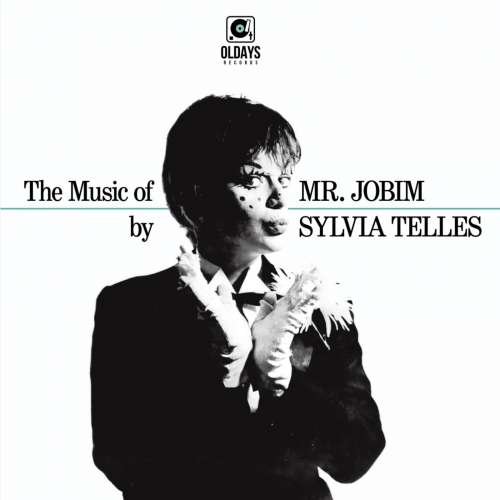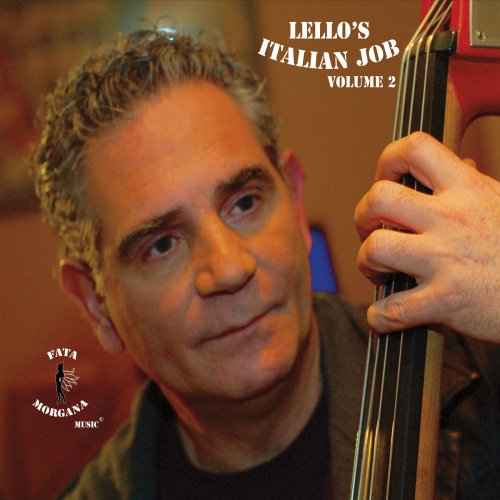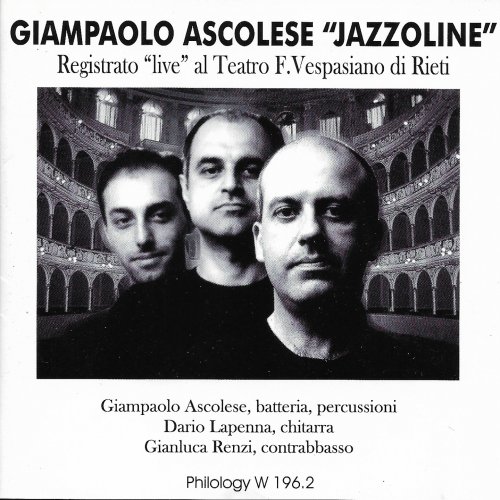Jimmy James And The Vagabonds - Sock It to 'Em J.J.: The Soul Years (2003)
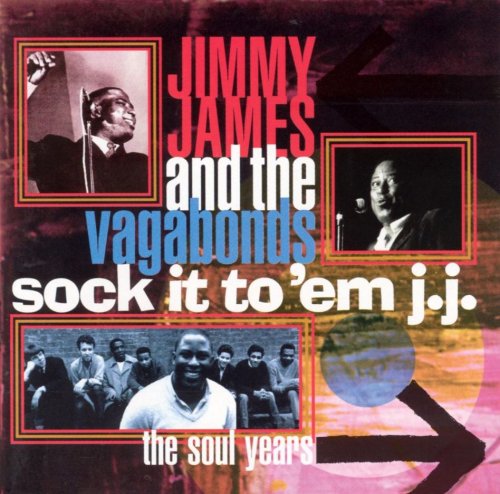
Artist: Jimmy James And The Vagabonds
Title: Sock It to 'Em J.J.: The Soul Years
Year Of Release: 2003
Label: Castle Music
Genre: Soul
Quality: Mp3 320 / Flac (tracks)
Total Time: 01:12:30 + 01:05:37
Total Size: 342/756 Mb
WebSite: Album Preview
Title: Sock It to 'Em J.J.: The Soul Years
Year Of Release: 2003
Label: Castle Music
Genre: Soul
Quality: Mp3 320 / Flac (tracks)
Total Time: 01:12:30 + 01:05:37
Total Size: 342/756 Mb
WebSite: Album Preview
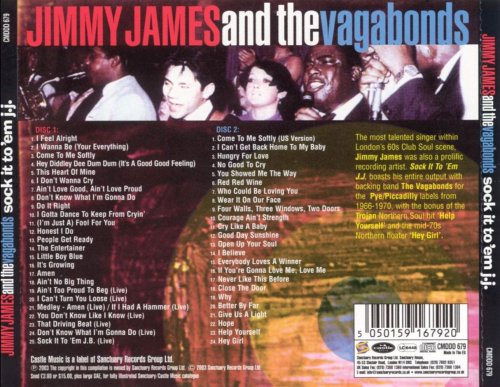
Tracklist:
CD 1:
01. I Feel Alright
02. I Wanna Be (Your Everything)
03. Come to Me Softly
04. Hey Diddley Dee Dum Dum (It's a Good Feeling)
05. This Heart of Mine
06. I Don't Wanna Cry
07. Ain't Love Good, Ain't Love Proud
08. Don't Know What I'm Gonna Do
09. Do It Right
10. I Gotta Dance to Keep from Cryin'
11. (I'm Just a) Fool for You
12. Honest I Do
13. People Get Ready
14. The Entertainer
15. Little Boy Blue
16. It's Growing
17. Amen
18. Ain't No Big Thing
19. Ain't Too Proud to Beg (Live Version)
20. I Can't Turn You Loose (Live Version)
21. Amen / If I Had a Hammer (Live Medley)
22. You Don't Know Like I Know (Live Version)
23. That Driving Beat (Live Version)
24. Don't Know What I'm Gonna Do (Live Version)
25. Sock It to 'Em J.B. (Live Version)
CD 2:
01. Come to Me Softly (US Version)
02. I Can't Get Back Home to My Baby
03. Hungry for Love
04. No Good to Cry
05. You Showed Me the Way
06. Red Red Wine
07. Who Could Be Loving You
08. Wear It On Our Face
09. Four Walls, Three Windows and Two Doors
10. Courage Ain't Strength
11. Cry Like a Baby
12. Good Day Sunshine
13. Open Up Your Soul
14. I Believe
15. Everybody Loves a Winner
16. If You're Gonna Love Me, Love Me
17. Never Like This Before
18. Close the Door
19. Why
20. Better By Far
21. Give Us a Light
22. Hope
23. Help Yourself
24. Hey Girl
During the mid- to late '60s, Jimmy James & the Vagabonds towered among the most popular soul acts on the British club and college circuit. Though rivaled only by labelmate Geno Washington & His Ram Jam Band in the hearts and minds of the London cognoscenti, the group's sellout performances nevertheless failed to translate into strong record sales, and commercial success would remain elusive until the rise of disco a decade later.
Born Michael James on September 13, 1940, the U.S. native was raised in Jamaica, first tasting fame as a solo act with the Tip Top label single "Bewildered and Blue," which topped the Jamaican charts in 1959. After scoring a second number one with "Come to Me Softly," James was approached by the Vagabonds -- second vocalist Count Prince Miller, guitarists Wallace Wilson and Phil Chen, bassist Coleson Chen, keyboardist Carl Noel, saxophonists Milton James and Fred Fredericks, and drummer Rupert Balgobin -- who were at the time the most popular live band in Jamaica behind Byron Lee & the Dragonaires. After installing James as lead vocalist, the Vagabonds enjoyed even greater popularity among locals and tourists alike, in 1964 issuing the Island label LP Presenting the Fabulous Vagabonds. However, the group yearned for international success and in 1965 relocated to London, where an opening gig for the Who at the famed Marquee Club resulted in an invitation to headline the venue on a weekly basis.
Under the wing of original Who manager Pete Meaden, the Vagabonds emerged as one of the hottest live acts in the U.K., renowned for both James' gritty, powerful vocals and the colorful antics of his foil Miller, the latter a born crowd-pleaser. After cutting "Shoo-Be-Doo You're Mine," a 1965 one-off for Columbia, James & the Vagabonds signed to the Pye imprint's Piccadilly subsidiary, in early 1966 issuing their label debut, "I Feel Alright," an exuberant stomper in the mold of their electric live appearances. For the follow-up, the group covered the Dells' "Hi-Diddly Dee Dum Dum," cracking Disc magazine's Top 50 for all of one week before sales sputtered.
Just why the Vagabonds' appreciative live audiences did not show their support at retail is a mystery -- their records were of consistently high quality, but often it seemed Piccadilly had little idea what to do with the band, and more than once the stronger performance from a particular session was relegated to the resulting single's B-side. Their third Piccadilly single, "This Heart of Mine," also featured on James & the Vagabonds' first full-length effort, The New Religion. After a fourth Piccadilly 7", "Ain't Love Good, Ain't Love Proud," Pye shuttered the label and the group moved to the parent company in time for 1967's "I Can't Get Back Home to My Baby." That same year, Pye also issued London Swings: Live at the Marquee Club, a concert LP devoting one half to James & the Vagabonds and the other to fellow nightclub favorites the Alan Bown Set.
With the release of the 1968 LP Open Up Your Soul, James & the Vagabonds finally scored a U.K. chart hit with their cover of Neil Diamond's "Red Red Wine," at the time one of the singer/songwriter's more middling hits -- James' cover spent two months on the British charts, peaking at number 36. The group also scored a U.S. hit when in 1968 its re-recorded version of James' early solo hit "Come to Me Softly" -- a B-side in Britain -- appeared as an Atco label single and entered the Billboard Hot 100. After 1970's "Better By Far," Pye dropped the Vagabonds and the original lineup splintered; both James and Count Prince Miller pursued solo careers, with the latter scoring the reggae smash "Mule Train" in 1971. In the meantime, James teamed with producer Biddu to notch the minor hit, "A Man Like Me," before signing to Trojan for a series of little-heard singles that culminated in the 1971 cult classic "Help Yourself." He still spent the better part of the early to mid-'70s outside the studio, gigging relentlessly with an ever-changing Vagabonds lineup in tow.
In 1976 James re-signed with Pye, immediately scoring a pair of disco-inspired pop hits with "Now Is the Time" and "I'll Go Where the Music Takes Me." Subsequent efforts like the wonderfully titled "If You Think This Funk Is Junk, You're Drunk" failed to chart, however, and his career again faltered -- 1984's "Love Fire" was hotly tipped as a comeback contender but went sadly overlooked, and three years later James also recut "I'll Go Where the Music Takes Me" to little avail. He nevertheless continued touring the cabaret circuit into the next century.
Born Michael James on September 13, 1940, the U.S. native was raised in Jamaica, first tasting fame as a solo act with the Tip Top label single "Bewildered and Blue," which topped the Jamaican charts in 1959. After scoring a second number one with "Come to Me Softly," James was approached by the Vagabonds -- second vocalist Count Prince Miller, guitarists Wallace Wilson and Phil Chen, bassist Coleson Chen, keyboardist Carl Noel, saxophonists Milton James and Fred Fredericks, and drummer Rupert Balgobin -- who were at the time the most popular live band in Jamaica behind Byron Lee & the Dragonaires. After installing James as lead vocalist, the Vagabonds enjoyed even greater popularity among locals and tourists alike, in 1964 issuing the Island label LP Presenting the Fabulous Vagabonds. However, the group yearned for international success and in 1965 relocated to London, where an opening gig for the Who at the famed Marquee Club resulted in an invitation to headline the venue on a weekly basis.
Under the wing of original Who manager Pete Meaden, the Vagabonds emerged as one of the hottest live acts in the U.K., renowned for both James' gritty, powerful vocals and the colorful antics of his foil Miller, the latter a born crowd-pleaser. After cutting "Shoo-Be-Doo You're Mine," a 1965 one-off for Columbia, James & the Vagabonds signed to the Pye imprint's Piccadilly subsidiary, in early 1966 issuing their label debut, "I Feel Alright," an exuberant stomper in the mold of their electric live appearances. For the follow-up, the group covered the Dells' "Hi-Diddly Dee Dum Dum," cracking Disc magazine's Top 50 for all of one week before sales sputtered.
Just why the Vagabonds' appreciative live audiences did not show their support at retail is a mystery -- their records were of consistently high quality, but often it seemed Piccadilly had little idea what to do with the band, and more than once the stronger performance from a particular session was relegated to the resulting single's B-side. Their third Piccadilly single, "This Heart of Mine," also featured on James & the Vagabonds' first full-length effort, The New Religion. After a fourth Piccadilly 7", "Ain't Love Good, Ain't Love Proud," Pye shuttered the label and the group moved to the parent company in time for 1967's "I Can't Get Back Home to My Baby." That same year, Pye also issued London Swings: Live at the Marquee Club, a concert LP devoting one half to James & the Vagabonds and the other to fellow nightclub favorites the Alan Bown Set.
With the release of the 1968 LP Open Up Your Soul, James & the Vagabonds finally scored a U.K. chart hit with their cover of Neil Diamond's "Red Red Wine," at the time one of the singer/songwriter's more middling hits -- James' cover spent two months on the British charts, peaking at number 36. The group also scored a U.S. hit when in 1968 its re-recorded version of James' early solo hit "Come to Me Softly" -- a B-side in Britain -- appeared as an Atco label single and entered the Billboard Hot 100. After 1970's "Better By Far," Pye dropped the Vagabonds and the original lineup splintered; both James and Count Prince Miller pursued solo careers, with the latter scoring the reggae smash "Mule Train" in 1971. In the meantime, James teamed with producer Biddu to notch the minor hit, "A Man Like Me," before signing to Trojan for a series of little-heard singles that culminated in the 1971 cult classic "Help Yourself." He still spent the better part of the early to mid-'70s outside the studio, gigging relentlessly with an ever-changing Vagabonds lineup in tow.
In 1976 James re-signed with Pye, immediately scoring a pair of disco-inspired pop hits with "Now Is the Time" and "I'll Go Where the Music Takes Me." Subsequent efforts like the wonderfully titled "If You Think This Funk Is Junk, You're Drunk" failed to chart, however, and his career again faltered -- 1984's "Love Fire" was hotly tipped as a comeback contender but went sadly overlooked, and three years later James also recut "I'll Go Where the Music Takes Me" to little avail. He nevertheless continued touring the cabaret circuit into the next century.
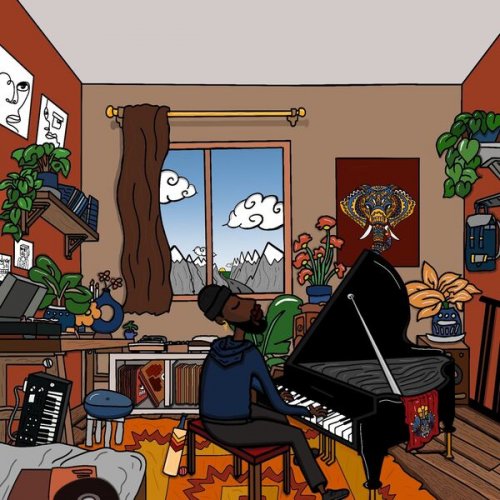
![The Mood Mosaic - Erotheque (Unleashing Groovy Musical Lust) (2026) [Hi-Res] The Mood Mosaic - Erotheque (Unleashing Groovy Musical Lust) (2026) [Hi-Res]](https://www.dibpic.com/uploads/posts/2026-02/1770314023_cover.jpg)
![Ari Bragi Karason - Unclear Family (2026) [Hi-Res] Ari Bragi Karason - Unclear Family (2026) [Hi-Res]](https://img.israbox.com/img/2026-02/06/yjelz9np21fbxv7fdk3vpg5p0.jpg)
![Oscar Peterson - The Sound Of The Trio (1961) [Vinyl 24-96] Oscar Peterson - The Sound Of The Trio (1961) [Vinyl 24-96]](https://www.dibpic.com/uploads/posts/2020-04/1587651652_613i2fde8wl__ss500_.jpg)
![Owelu Dreamhouse - Owelu Dreamhouse (2026) [Hi-Res] Owelu Dreamhouse - Owelu Dreamhouse (2026) [Hi-Res]](https://img.israbox.com/img/2026-02/05/dyetvafic12nz1s9v6zs98erj.jpg)
![Jamhunters - Smoothest Hits (20 smooth years) (2026) [Hi-Res] Jamhunters - Smoothest Hits (20 smooth years) (2026) [Hi-Res]](https://www.dibpic.com/uploads/posts/2026-02/1770353356_vo4tf6d4yjji2_600.jpg)
